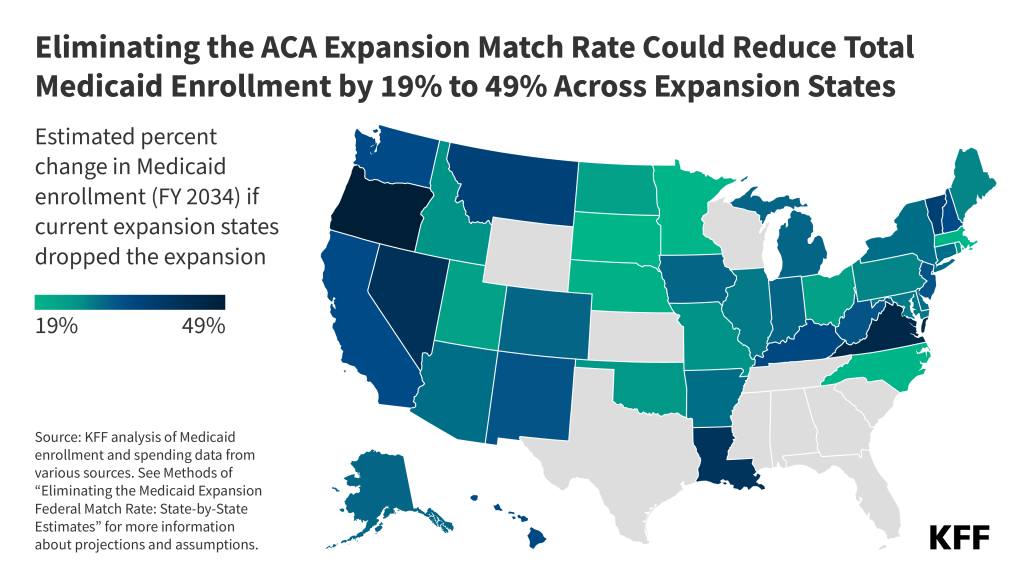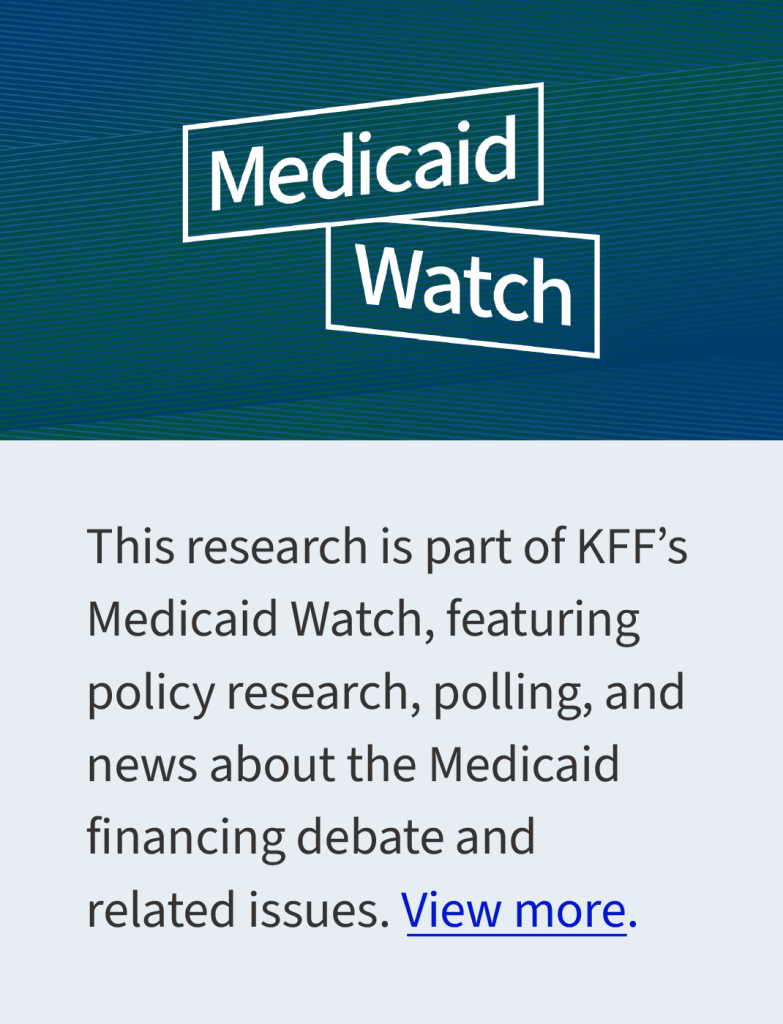
The independent source for health policy research, polling, and news.
Eliminating the ACA Medicaid Expansion Match Could Reduce Total Medicaid Spending by Up To $1.9 Trillion Over 10 Years and End Coverage for 20 Million People
A new KFF analysis finds that a congressional proposal to significantly cut federal spending on the Affordable Care Act’s Medicaid expansion could reduce total Medicaid spending by up to nearly one-fifth, or $1.9 trillion, over a 10-year period, and end Medicaid coverage for as many as 20 million people.
The impacts would be felt in both blue and red states and could effectively reverse and end the Medicaid expansion in most or all states that have adopted it.
The analysis shows state-by-state estimates for two scenarios if Congress eliminates the ACA provision under which the federal government picks up 90% of the cost of covering the Medicaid expansion population and instead reimburses states at their traditional match rate, which ranges from 50% to 77%.
- The first scenario assumes that all states would maintain their Medicaid expansion by replacing lost federal dollars with increased state spending, meaning no enrollees would lose coverage. That would result in a decrease in federal Medicaid spending of 10%, or $626 billion, across all states over a 10-year period, and a corresponding increase in collective state Medicaid spending of 17% (also $626 billion) over that time, according to the analysis.
- The second assumes that states would not make up the funding shortfall resulting from federal spending reductions and drop the ACA Medicaid expansion. This would result in a 25% decrease in federal Medicaid spending, or $1.7 trillion, and a 5% decrease in state Medicaid spending, or $186 billion, across all states over a 10-year period. All told, total Medicaid spending would decline by nearly one-fifth, or $1.9 trillion, and 20 million people would lose coverage.
Only the 40 states and Washington D.C. that have adopted the Medicaid expansion would see any spending or enrollment impacts under the current proposal being considered by congressional Republicans. But as the analysis shows, the impacts in those states – which include 21 states that voted for President Donald Trump and 19 states plus D.C. that voted for former Vice President Kamala Harris – would vary considerably by state.
For instance, if states drop the Medicaid expansion, enrollment declines will range from 49% in Oregon to 19% in Massachusetts, Minnesota, North Carolina and South Dakota. In raw numbers, at the extremes, 5 million people in California could lose Medicaid coverage, compared to 24,000 in North Dakota and South Dakota.

Twelve states currently have “trigger” laws in place that would automatically end expansion or require changes if the federal match rate were to drop below 90%, but other states would also likely drop the expansion in response to the loss of federal funding.
If states seek to preserve their Medicaid expansion, the lost federal funding that they would have to replace (over the 10-year period) would range from $129.4 billion in California to $953.4 million in South Dakota. Other states that would see notable federal funding declines/increases in state spending include New York ($71.7 billion), Illinois ($40.9 billion), Pennsylvania ($27 billion), and Ohio ($20.1 billion) to name a few. (See the full list in Appendix Table 1.)
Eliminating the Medicaid expansion match is one of several options under consideration by Republicans in Congress to reduce Medicaid spending to help pay for an extension of the 2017 tax cuts. Medicaid provides health coverage to low-income Americans and accounts for nearly $1 out of every $5 spent on health care in the U.S.
